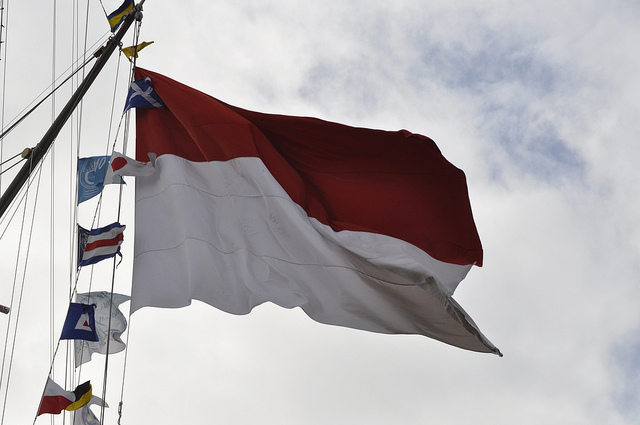
After terror attacks, a country comes together in strength, not fear.
Photo courtesy of Pim Stouten (Flickr)
“Life’s most persistent and urgent question is, ‘What are you doing for others?’” Dr. Martin Luther King, Jr. once said. This quote reaches beyond the limits of King’s experience in the American Civil Rights Movement to many other situations.
Indeed, every human being is equal. Despite this, differences often bring misery upon mankind. Belief, ideology, race and religion can force people further apart rather than bring them together.
Additionally, there are always those who haven’t learned from the history of human civilization that hatred will not take us anywhere besides a trail of injuries.
On Jan. 14, misery and injury brought on by hatred struck our world again when members of the Islamic State of Iraq and the Levant (ISIS) spread terror. The city of Jakarta, the capital of Indonesia, the country where I come from, was the target of attack this time. The incident took the lives of five members of ISIS and two civilian victims.
I received the news through the radio early in the morning while on my way from Washington D.C. to New Jersey. Undoubtedly, I was feeling anxious about my family and friends who live in Jakarta.
It wasn’t just me who was worried, but other Indonesian students and citizens who live in the United States. Wendi Wijarwadi, a student of the University of Minnesota, was especially anxious about the attack because his wife was in the area around the bombing site when it happened.
Kadek Doi, another Indonesian student who attends Montclair State, also immediately contacted her family in Bali, another city in Indonesia, which had also been the target of militant groups previously in 2002 and 2005.
Getting the most accurate news is an important thing when you are far away from your homeland, especially if a an attack has just happened. In addition to worrying about the condition of our families, news of the impact of the event and the reaction of Indonesian society are also important. We are getting information from news stations and also follow Indonesian netizens posting via Twitter, Facebook and other social media to find out more.
I remember that when Paris was attacked by the same militant group, Facebook created a feature so that users could show their sympathy and give support using an overlay of the French flag in their profile picture.
Just hours after the attack, Indonesian people made hashtag #KamiTidakTakut that means “We Are Not Afraid” on social media websites such as Twitter and Facebook. This spirit spread so fast and all over the globe. Together, those who used the hashtag did not talk a lot about how horrible the attack was, but they discussed other things, such as how successfully the Indonesian police secured the location and caught the terrorist, how people are still doing their daily activities around the attack location and how this attack will make Indonesian people unite to fight terrorism.
Some images uploaded by netizens show people gathered to watch the scene when the police and the terrorists shot at each other. While this was happening, traders were still selling and some even used the bomb site as a selfie point. These messages are very strong and break the purpose of terror itself. Terrorism wants to create fear and, in this instance, it has totally failed. The people of Indonesia and their supporters have successfully sent out the message: “We are not afraid.”
Responding with hashtag #KamiTidakTakut, Hilman Wirawan, an Indonesia student at Montclair State, felt proud of the bravery and spirit of Indonesians against terror.
Melur Senjahari, a Florida State University student who was living in Jakarta when the terror attack happened, said that the hashtag has positive impact to Indonesian people as a unifier to fight back any form of terrorism.
Indonesia is a country with more than 87 percent Muslim population. As a Muslim, I can say that ISIS cannot claim all their terror as jihad. In my religion, killing people or committing suicide is a sin and Islam preaches that there is no heaven for the people who commit these sins.
Questions such as “What exactly are you looking for?” and “Why did you do that? Don’t you know that is a sin?” come from other Indonesian students at the University of Chicago and Universitas Indonesia. We just cannot understand how they say that their terror is in the name of our religion.
Following this Martin Luther King Day, I think of his message: “In the end, we will remember not the words of our enemies, but the silence of our friends.” It is time for us to say that we are all Indonesian, most of us are Muslim and we do not accept terrorism, neither in our country nor in any other places in this world.


